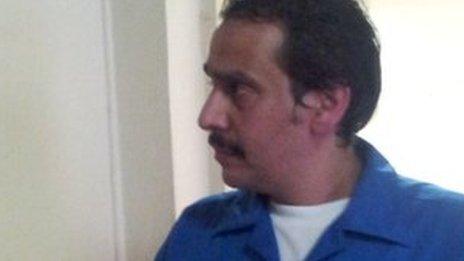Change brings challenges for Qatar Emir Tamim
- Published
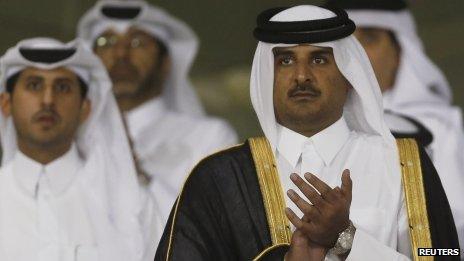
Tamim bin Hamad al-Thani assumed power in a handover rare among Gulf monarchies
After months of rumours and speculation, the Emir of Qatar, Sheikh Hamad bin Khalifa al-Thani, has formally handed power to his son, Tamim bin Hamad al-Thani, as part of an ordered transition that appears to have been many months in the making.
In a speech replete with references to empowering the youth of the nation, and the need for change, the emir enacted a transition that will see him leave the stage he has dominated for nearly two decades alongside his Prime Minister Sheikh Hamad bin Jassim al-Thani, who is expected to be stepping down imminently.
In recent weeks, discreet communications were passed to various diplomats and leading businessmen to inform them that change was in the works, and although it was unclear exactly when the process would happen, the widely rumoured "before Ramadan" timeline proved to be true.
'Unfillable gap'
Now that the handover is officially complete, and once two days of meeting and greeting Qatar's well-to-do are over, the 33-year-old emir will need to turn his attention to a growing number of challenges.
And though it would not be fair to describe Sheikh Tamim as a novice in world affairs, he has yet to face complex issues without the support of his father, and the efforts of Khalid al-Atiyya, Qatar's energetic minister of state for foreign affairs. And of course the dominating presence of the PM and Foreign Minister Hamad bin Jassim.
It is widely believed that HBJ, as he is known, will step down as part of the cabinet reshuffle in which a number of new appointees are expected.
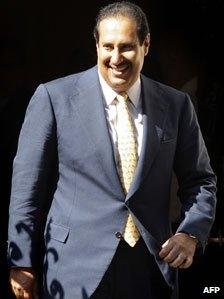
Qatari PM Hamad bin Jassim is expected to step down
His departure will leave an unfillable gap. Hamad bin Jassim is one of the very best diplomats the region has to offer, hard-working, shrewd and full of charisma. He possesses all the tools needed to cajole and persuade.
His are big shoes to fill, and the skill of diplomacy is something that is as much innate to a person's character as it is to experience. Sheikh Tamim has certainly learnt the ropes quickly and may well grow to be a great emir, but with Hamad bin Jassim's departure, Qatar's clout on the foreign stage will undoubtedly suffer, and this at a time when the country is facing increasing criticism.
The region, once friendly and open to Qatar's influence, now views the emirate's intentions with suspicion, fear and even hatred. In the Gulf, Bahrain and the United Arab Emirates (UAE) have grown distrustful of Qatar and its alliances and foreign policy initiatives. The UAE in particular has been angered by Qatar's growing relationship with the Muslim Brotherhood and has worked to try to blunt Qatari influence at every turn.
Some in Qatar have expressed hope that Sheikh Tamim will work to reset relations with neighbouring Gulf states, and bring Qatar closer into the fold of the Gulf Co-operation Council (GCC) in the coming years.
In Libya, Tunisia and Egypt, the public mood has turned against Qatar, despite or perhaps because of the billions that Qatar has pumped into those North African countries. In responding to the Arab Spring, Qatar helped enable revolutions that saw three dictators fall, but its continued support for Islamists has angered many.
In Tahrir Square, Egyptians burnt Qatari flags and a leading comedian, Bassam Youssef, has taken several pokes at the Qataris for their involvement in Egyptian political and financial affairs.
Al-Jazeera, Qatar's once shining jewel, has also suffered, losing an estimated five million viewers. It is being criticised for appearing biased and lacking in editorial rigour, in effect becoming an extension of the Qatari government rather than an independent news organisation.
But it is in Syria that the Qataris face their greatest challenge. Where once they were confident that the regime of Bashar al-Assad would crumble in the face of international pressure and arms transfers to rebel forces, the war now looks to be moving in Mr Assad's favour.
Should his forces prevail, the consequences for Qatar, following two years of active support for the opposition and $3bn (£2bn) spent on weapons and humanitarian aid, are potentially devastating. Qatar's position and influence in the region would be irreparably damaged should the rebels it has backed so openly be defeated.
At the same time, Qatar's relationships with the West remain a mixture of engagement and confusion. Qatar needs Western military support, and intelligence co-operation, particularly with regard to the Syrian crisis. But distrust clouds Western interpretations of Qatar's intentions, and its relationships with hardline Islamists in Libya and Syria as well as the country's links with Hamas are troubling Washington and its allies.
Few doubt the ruling family will remain close to Western powers, particularly as it seeks to maintain deterrence vis-a-vis Iran, but Qatar will never be the fully compliant ally the West may wish it to be. And the West will never be entirely at ease with Qatar's Islamist links.
Balancing act
Though there is talk of Sheikh Tamim's conservatism and his fondness for the Muslim Brotherhood, there is no actual evidence for either charge other than the rumour and gossip so often associated with Gulf politics. And regardless of the prince's personal beliefs, it is likely that very little would change under his leadership.
That is because Qatar's main initiatives and policy tracks are more or less set in stone. The 2030 Vision, which outlines the development goals for the country, is already chaired by Sheikh Tamim (with significant input from his mother Sheikha Mozah and his father, the emir) and has a clear modernising social agenda.
Likewise, the football World Cup in 2022 will require social and legal reforms in the country, most notably around workers' rights and the construction of stadiums and new cities for its large expatriate population to live in. Qatar has invested billions of dollars already in realising these visions, and Sheikh Tamim could not turn his back on these gargantuan projects even if he wanted to.
Nevertheless Qataris are a traditional people, and the emir will have to balance his subjects' need for maintaining the traditions of his people with modernising the rapidly growing country.
It is interesting that Sheikh Hamad made explicit mention of his confidence in the younger generation's "loyalty to your Arab and Islamic heritage". It is a delicate balancing act and one Sheikh Tamim must manage with sensitivity if he is to succeed in ensuring the country develops successfully.
Push for reform
However, lost in a story which has consumed the elite in Doha is an issue that will not go away. It concerns the push for constitutional reform and the first ever elections to Qatar's advisory council. The council is an appointed body and its term ends on 30 June 2013, but just before the abdication announcement by the emir, the council's term was extended.
Much criticism has been directed at Qatar calling for change in regions of the Arab world, but not practising what it preaches at home. Granted Qataris - there are just 250,000 - live privileged lifestyles, and the call for democracy comes from a tiny number of activists, but regional states still chafe at this particular inconsistency.
Time will tell if Sheikh Tamim decides to push forward with pluralistic change, but it would greatly assist the young emir in maintaining Qatar's regional aspirations and it would enhance his reputation with Arab youth calling for reform if this process was started in earnest.
Certainly, declaring elections early on in his reign would cement his legacy as an emir committed to the long-term prosperity of his nation.
Sheikh Tamim will be a man who stays close to his father's legacy; after all, Sheikh Hamad would not have felt secure enough to hand over his crown to a man who was not of his ilk.
Inculcated from a young age with the values of hard work, and of keeping an open mind, Sheikh Tamim is unlikely to fall far from the tree. Nevertheless how the new emir deals with an unstable region and a country undergoing significant social change will be fascinating to watch, as will the extent of his commitment to democratic reform.
Michael Stephens is a research analyst for Rusi in Doha (@MStephensgulf)
- Published16 January 2013
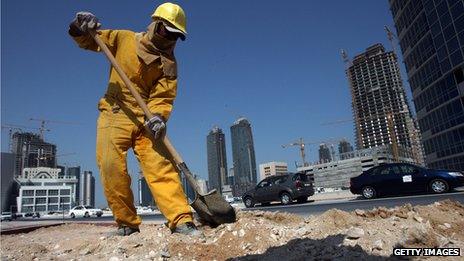
- Published7 September 2023
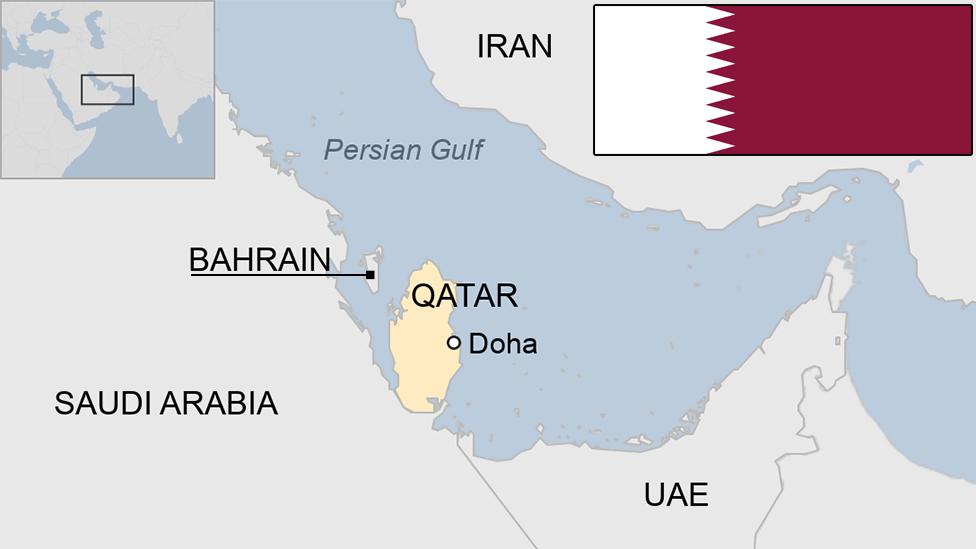
- Published26 January 2013
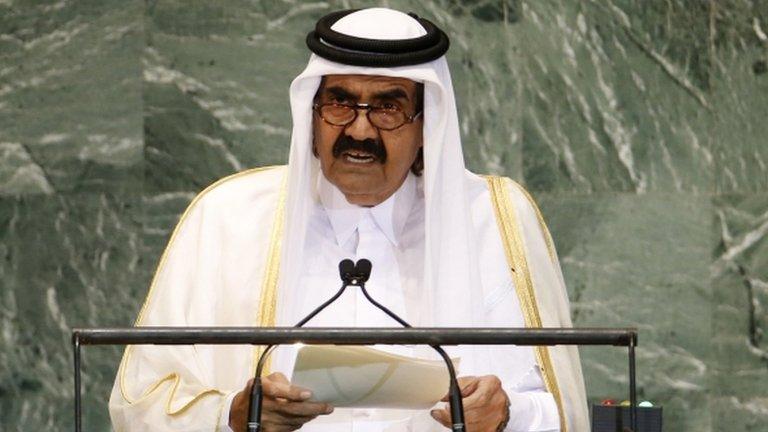
- Published25 February 2013
